Business
Binance: Nigerian Govt talks tough over Gambaryan’s allegations against Ribadu, others
Published
2 months agoon
By
Ekwutos Blog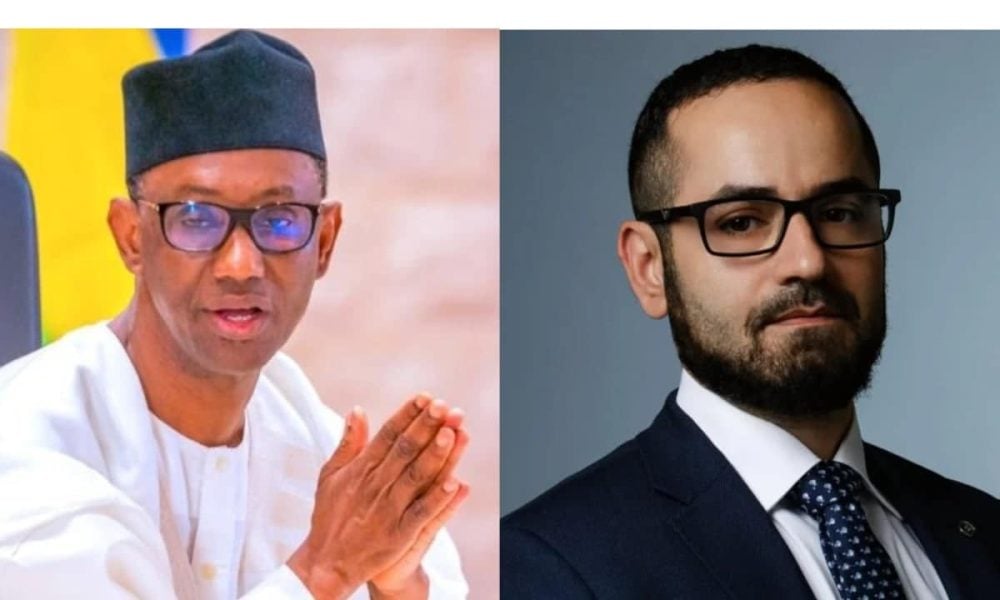
The Federal Government of Nigeria has expressed concerns over what it described as outrageous allegations, misinformation, and defamatory statements being disseminated by Tigran Gambaryan, an American personnel of Binance.
Gambaryan was recently tried in Nigeria for financial crimes.
Recall that Gambaryan and his fellow, Anjarwalla were detained on February 26, 2024, by the Nigerian government.
While Anjarwalla escaped from custody, Gambaryan was kept in detention and was charged for money laundering by the Economic and Financial Crimes Commission, EFCC.
This came after the Governor of the Central Bank of Nigeria, Olayemi Cardoso, raised the alarm that $26 billion was funneled through Binance without a trace.
But, months after the legal tussle, the Nigerian government dropped charges against Gambaryan and Binance.
In October 2024, the court ordered the release of Gambaryan.
On Friday, Ekwutosblog reported that Gambaryan accused Nigeria’s National Security Adviser, Nuhu Ribadu, of seeking a bribe to fund his political ambition.
The Binance former executive also accused Reps member, Philip Agbese and two other Nigerian lawmakers of demanding a $150 million bribe, which should be paid into their cryptocurrency wallets.
However, Agbese, member representing Ado/ Okpokwu/ Ogbadibo Federal Constituency in Benue State, had challenged Mr Gambaryan to provide evidence of him demanding the bribe.
He went further to threaten legal action against Gambaryan if he failed to prove his allegations or apologize within seven days.
Similarly, in a statement signed by the Minister of Information and National, Mohammed Idris, the Nigerian government said it was obliged to set the records straight to stop his falsehoods from gaining grounds.
“The first visit by Mr. Gambaryan and his colleagues to Nigeria was discretionary on their part and Government was not officially involved,” the statement said.
“However, when the attention of the Government was called to an alleged bribery demand during that trip an investigation was immediately opened into it though there was no formal complaint by anyone.
“Mr. Gambaryan’s second visit to Nigeria was part of a wider probe into the criminal manipulation of the Nigerian currency through peer-to-peer platforms like Binance, but investigators were frustrated by the tactics deployed by Gambaryan and his team.
“The government rejected Binance’s offer of a $5 million down payment in exchange for Mr. Gambaryan’s freedom, in favour of a more beneficial settlement with the American government.
“We categorically deny the retaliatory claims made by Mr. Gambaryan against Nigerian officials involved in his case, and we urge the public to disregard these false accusations in their entirety.
“It is essential to note that Mr. Gambaryan’s allegations are not only unsubstantiated but also lack credibility, given his apparent motive to discredit and intimidate those who ensured he faced justice.
“However, we are confident that both the Nigerian and American judicial systems will provide Mr. Gambaryan with a fair opportunity to substantiate his claims in court.
“Until then, we advise the public to exercise caution and not be swayed by Mr. Gambaryan’s unfounded and malicious claims.”

You may like
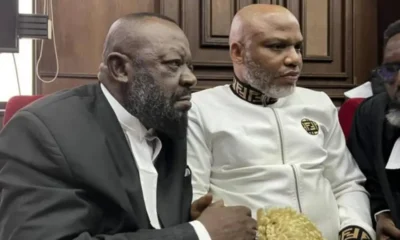

Nnamdi Kanu detained, prosecuted for making same remark as DSS DG, Ajayi – Ejimakor
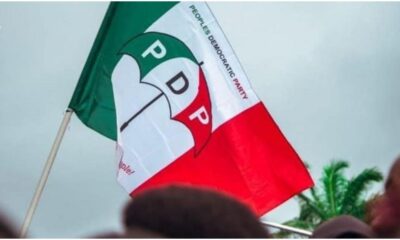

PDP chieftains in Katsina announce coalition to challenge APC in 2027
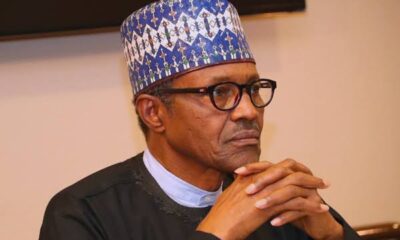

Former President Muhammadu Buhari sends his heartfelt condolences to the family of the of Alhaji Abbas Sunusi, Galadiman Kano, who passed away yesterday.
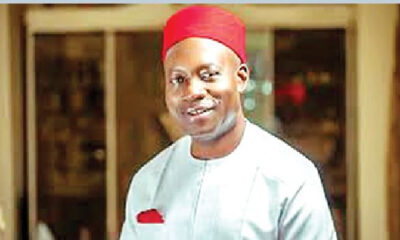

Anambra: Soludo unveils security supervisory committee


Algiers-Abuja direct flight service begins April 6 – Nigerian govt
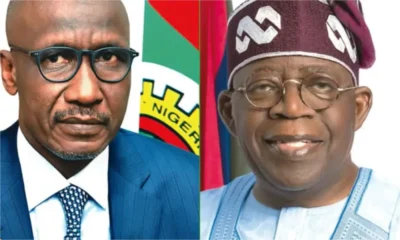

NNPC: NAPE backs Tinubu on Kyari sack, Ojulari appointment
Business
NNPC: NAPE backs Tinubu on Kyari sack, Ojulari appointment
Published
9 hours agoon
April 2, 2025By
Ekwutos Blog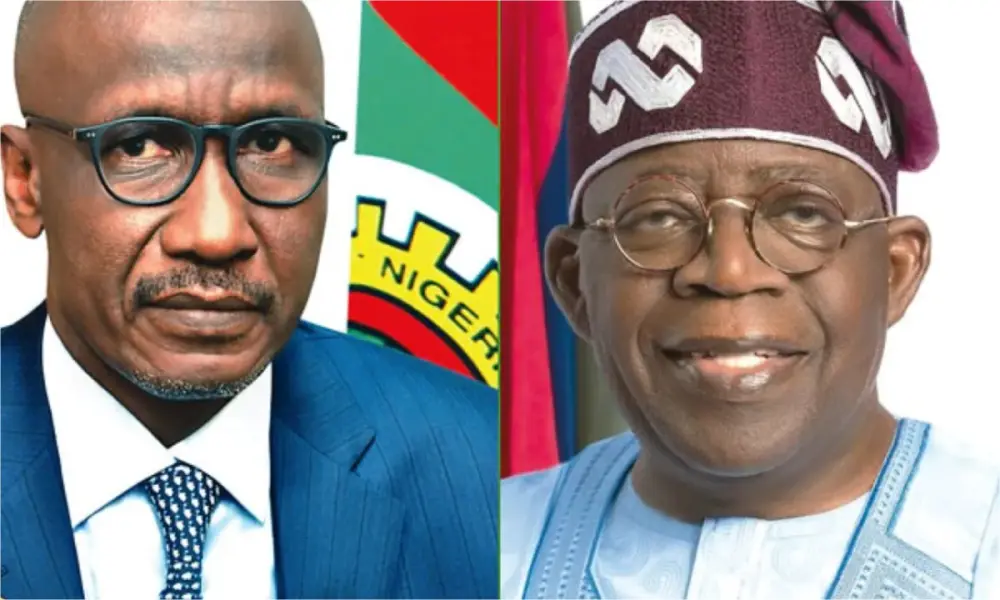
The Nigerian Association of Petroleum Explorationists has backed President Bola Ahmed Tinubu for the new Nigerian National Petroleum Company board appointment.
The president of NAPE, Johnbosco Uche, disclosed this in a statement on Wednesday.
Ekwutosblog reports that Tinubu removed the NNPCL chairman, Pius Akinyelure, and the GCEO, Mele Kyari, on Wednesday.
Reacting, NAPE noted that the appointment of Bayo Ojulari as group chief executive officer and Ahmadu Musa Kida as non-executive chairman of NNPCL is a bold step towards repositioning the oil and gas industry for greater efficiency, transparency, and profitability.
“The Nigerian Association of Petroleum Explorationists wishes to express its profound appreciation to President Bola Ahmed Tinubu for the recent appointment of a new board and management team for the Nigerian National Petroleum Company Limited.
“We are confident that the new team will bring the necessary expertise and experience to drive the oil and gas sector forward,” the association said.
Business
Why Aussie consumers could soon be paying DOUBLE for beef
Published
13 hours agoon
April 2, 2025By
Ekwutos Blog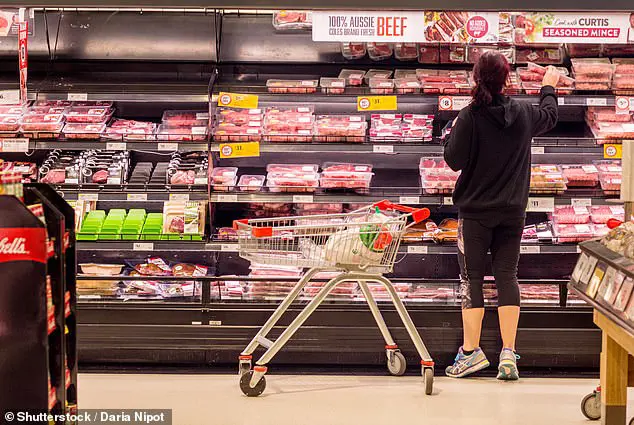
- Small-scale farmers warning of $56/kg rump steaks
- PODCAST: Trump round three, Musk’s breakup with DOGE – and former Denmark ambassador on the ‘smartest thing’ Greenland can do. Listen here
Australian consumers could end up paying more than $50 a kilo for steak at the supermarket as a result of Donald Trump‘s tariffs on agriculture exports, farmers say.
A kilogram of rump steak at Woolworths is now selling for $28.
But the Australian Food Sovereignty Alliance, representing 350 small-scale farmers, fears rump steak will end of costing Australian consumers $56 at the supermarket.
Spokeswoman Tammi Jonas, an organic beef cattle producer from Daylesford in Victoria, said the American tariffs on agricultural imports would see more countries buy Australian beef to avoid trading with the US.
‘We already know there’s high demand for Australian beef around the world and I think that’s just going to get higher,’ she told Daily Mail Australia.
‘In a global supply crunch like this, we could see rump steak climb past $50 per kilogram.
‘That’s not a family dinner – that’s a premium luxury.’
Dr Jonas said higher export prices would see less Australian meat sold to domestic consumers.
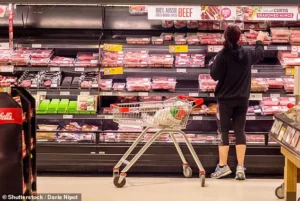
Australian consumers could end up paying more than $50 a kilo for steak as a result of Donald Trump ‘s tariffs on agriculture exports, farmers say (pictured is a Coles supermarket)
‘I would say there’s a strong likelihood of that, yes,’ she said.
‘And even if we still have enough beef sold within Australia, the prices are certain to go up.
‘Whenever you’re in those global markets, you roll with the volatility and if they can get a really high price overseas, they’re not going to charge less for domestic sales.’
But Angus Gidley-Baird, a senior analyst in animal protein with RaboResearch, said more expensive steak at the supermarket was unlikely, given the strong supply of Australian beef with the recent rainfall.
‘We produced record volumes of beef last year, I don’t see why there would be a shortage in the domestic market that would cause prices to rise,’ he told Daily Mail Australia.
‘The exports are effectively our markets that we sell the additional production into.’
Meat and Livestock Australia data showed the US was Australia’s biggest market for beef exports in 2024, putting it well ahead of Japan, South Korea and China.
Of the beef sent to the United States, 96 per cent of it was the leaner, grass fed variety that was either chilled or frozen.
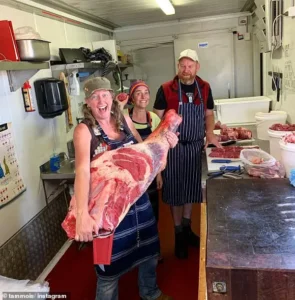
The Australian Food Sovereignty Alliance fears rump steak will end of costing Australian consumers $56 at the supermarket. Spokeswoman Tammi Jonas (left) said the American tariffs on agricultural imports would see more countries buy Australian beef to avoid trading with the US
The Americans have been in the grip of a drought, and most of their beef is fattier, grain-fed.
South American beef exporters Argentina and Brazil are also dealing with a lack of rainfall, which means demand for Australian beef would continue to be strong.
Mr Gidley-Baird said the Americans, who produced fattier, grain-fed beef, would still need the leaner, Australian grass-fed beef to make hamburger patties, regardless of import tariffs.
‘The US still continues to need imported product because they’re not producing as much themselves,’ he said.
‘They’ll still need Australian beef – the drought, it’s getting better in the US but they’ve liquidated their herd and production volumes are down.
‘What Australia sends to the US complements their production system over there in that it balances out the fatter product they’re producing for hamburger production.
‘They need the product and we’re one of the biggest suppliers of it – me being rational would still say that they would still buy it.’
At the margins, strong American demand for grass-fed beef had pushed up prices for Australian lean mince, now selling for $15.50 a kilo at Woolworths.
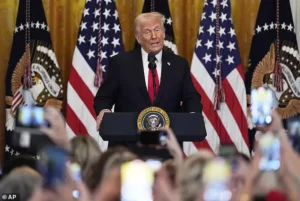
The Trump Administration’s tariffs of up to 25 per cent on agricultural imports are coming into affect on Thursday, along with tariffs on pharmaceutical products (President Donald Trump is pictured in the White House)
‘The US market has been very strong – it’s demanding a fair amount of product which is putting a bit of pressure on mince prices, lean product prices,’ Mr Gidley-Baird said.
The Australian Food Sovereignty Alliance sees mince prices more than doubling to $36 a kilo.
But Dr Jonas predicted possible tariffs of up to 25 per cent on Australian beef would see American demand plunge, despite the fact they are in drought with an undersupply of grass-fed beef.
‘I think with a 25 per cent tariff they won’t be able to afford it – Americans are in as big a cost-of-living crisis as Australians are and they can’t handle a 25 per cent tariff on top of the higher meat price of imported Australian beef,’ she said.
The Australian Food Sovereignty Alliance didn’t do specific economic modelling on Australian beef prices, as a result of the Trump tariffs on agriculture coming into effect on Thursday.
But it argued China’s African swine flu in 2019 led to a doubling of pork prices, as supply fell by 40 per cent.
The alliance campaigns against agribusiness giants like JBS Foods Australia, which owns feedlots and abattoirs.
‘The local farmers like us are losing access to the facilities to slaughter,’ Dr Jonas said.
‘While that sounds like a good thing for Australia – when we think, “We can export more” – the reality of that is very few people profit from that higher export.’
The Trump Administration’s tariffs of up to 25 per cent on agricultural imports are coming into effect on Thursday, along with tariffs on pharmaceutical products.
‘If it’s a large tariff but applied to everyone, our competitive position remains the same,’ Mr Gidley-Baird said.
They follow 25 per cent tariffs on steel and aluminium, introduced on March 12.
Business
BREAKING: Tinubu sacks NNPCL CEO, Mele Kyari, appoints Bayo Ojulari
Published
18 hours agoon
April 2, 2025By
Ekwutos Blog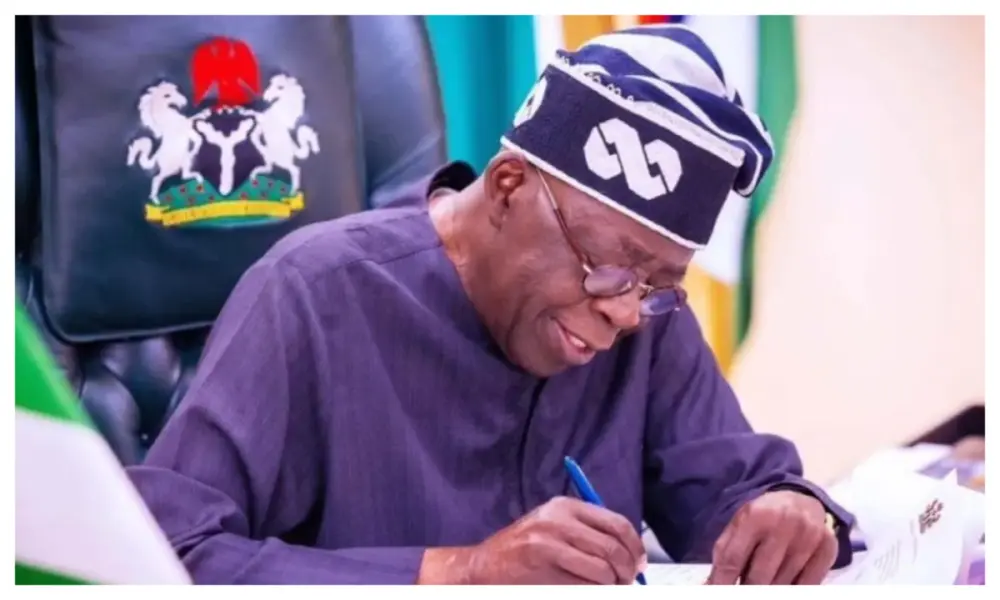
President Bola Tinubu has sacked the Group Chief Executive Officer (CEO) of the Nigerian National Petroleum Company Limited, NNPCL, Mele Kyari.
Tinubu also dissolved its board, removing the Chairman, Chief Pius Akinyelure.
Bayo Onanuga, Special Adviser to the President on information and strategy, announced this in a statement on Wednesday.
Onanuga said Tinubu invoked his powers under section 59(2) of the Petroleum Industry Act (PIA) 2021 to carry out the sweeping reconstitution, citing the need for “enhanced operational efficiency, restored investor confidence, and a more commercially viable NNPC”.
He announced that Tinubu has now approved a new 11-man board, which has Engineer Bashir Bayo Ojulari as the Group CEO and Ahmadu Musa Kida as non-executive chairman.
According to the statement, “Adedapo Segun, who replaced Umaru Isa Ajiya as the chief financial officer last November, has been appointed to the new board by President Tinubu.
“Six board members, non-executive directors, represent the country’s geopolitical zones. They are Bello Rabiu, North West, Yusuf Usman, North East, and Babs Omotowa, a former managing director of the Nigerian Liquified Natural Gas( NLNG), who represents North Central.
“President Tinubu appointed Austin Avuru as a non-executive director from the South-South, David Ige as a Non-executive director from the South West, and Henry Obih as a non-executive director from the South East.
“Mrs Lydia Shehu Jafiya, permanent secretary of the Federal Ministry of Finance, will represent the ministry on the new board, while Aminu Said Ahmed will represent the Ministry of Petroleum Resources”.
He added said that all the appointments are effective today, April 2.

Rhodes-Vivour, Sanwo-Olu clash over Lagos Health Insurance Scheme

DOGE: Elon Musk terminates additional 80 wasteful contracts worth $203.6bn

Nnamdi Kanu detained, prosecuted for making same remark as DSS DG, Ajayi – Ejimakor
Trending

 Trending5 months ago
Trending5 months agoNYA demands release of ‘abducted’ Imo chairman, preaches good governance
- Business5 months ago
US court acquits Air Peace boss, slams Mayfield $4000 fine

 Politics5 months ago
Politics5 months agoMexico’s new president causes concern just weeks before the US elections
- Entertainment5 months ago
Bobrisky transferred from Immigration to FCID, spends night behind bars
- Entertainment5 months ago
Bobrisky falls ill in police custody, rushed to hospital

 Politics5 months ago
Politics5 months agoRussia bans imports of agro-products from Kazakhstan after refusal to join BRICS

 Politics5 months ago
Politics5 months agoPutin invites 20 world leaders
- Politics1 year ago
Nigerian Senate passes Bill seeking the establishment of the South East Development Commission.
